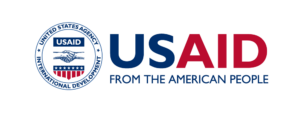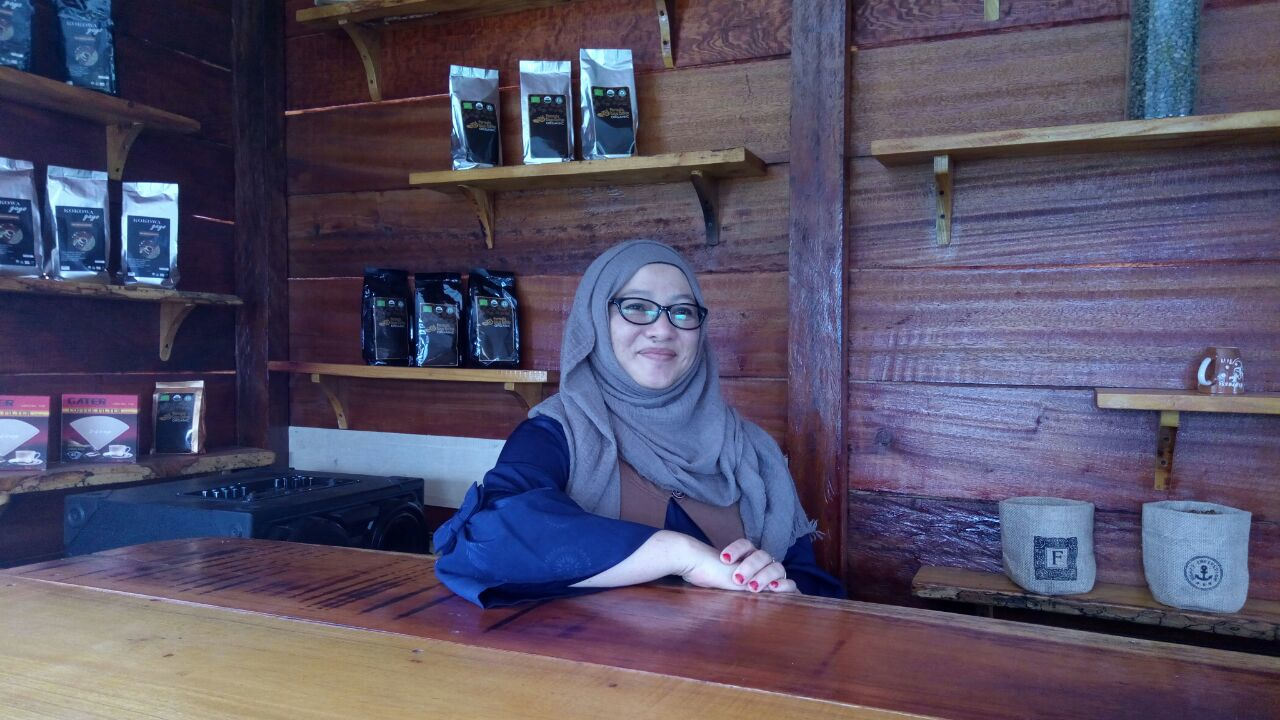
Making History: Aceh’s First Women-Owned and Led Cooperative
Ibu Rizkani is a woman who is shattering gender expectations in Indonesian agriculture. She is the Founder and Position Chair of Kokowagayo, the first women-owned and led cooperative in Sumatra, Indonesia. Prior to running her own coffee business, she worked with another cooperative, which consisted of 95% male employees. The few women that were employed were rarely given the opportunity to share their professional ambitions with their male counterparts, even though women accounted for over 70% of the labor at the cooperative. Ibu described the attitude toward women in the cooperative, as “you come, you sit, you stay quiet and then you go home.” This patriarchal attitude is common in Aceh given that it is a religiously conservative Indonesian province-the only one officially practicing Sharia law, which limits Acehnese women’s role in the public domain.
While Ibu did the hard work of creating her own women-led enterprise, her efforts have been amplified by enthusiastic partners like USAID and Root Capital. Root Capital began supporting Ibu’s endeavors in 2018, first providing advisory services and later financing. Root Capital has awarded Kokowagayo two resilience grants (philanthropic grants meant to bolster a business’s resilience) totaling $11,000 to support their business management, workers’ salaries, and operational costs. In 2023, Kokowagayo received a $500,000 line of credit from Root Capital to be used for general working capital.
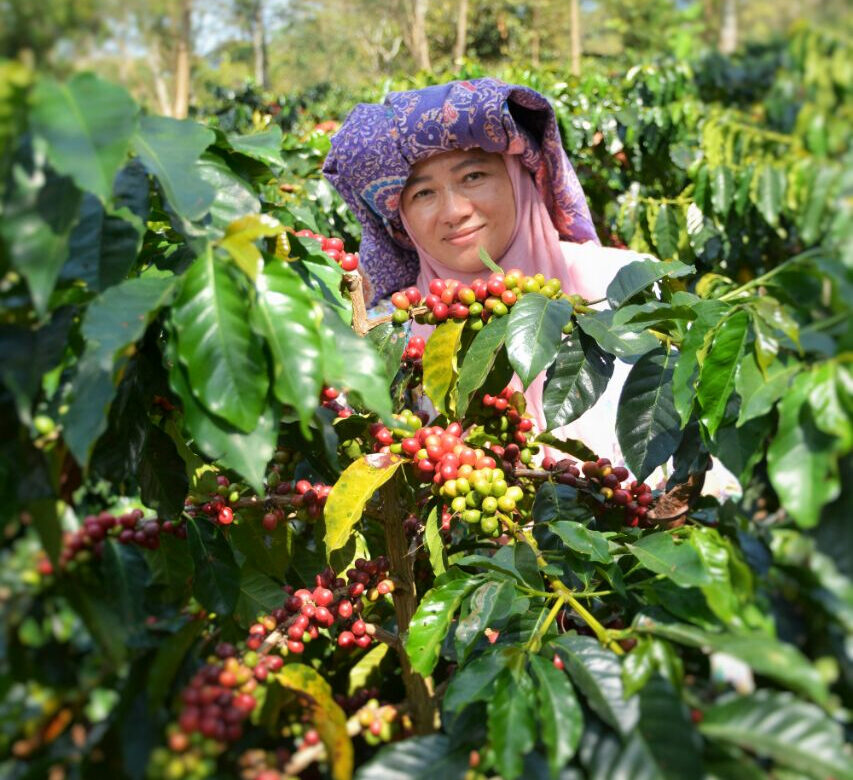 A member of the women-only Kokowagayo cooperative in Aceh, Indonesia. Credit: Root Capital.
A member of the women-only Kokowagayo cooperative in Aceh, Indonesia. Credit: Root Capital.
Cultural Context: Women’s Entrepreneurship in Aceh
Before founding her own cooperative, Ibu often met like-minded women who yearned to play an equal part in their organizations. Ibu knows that women can be talented organic coffee producers, but cultural norms create social and professional barriers for women in agriculture. This is intensified by the fact that many women agricultural workers reside in rural areas and have limited access to material goods needed for production and internet services necessary for business management.
Ibu recognizes her own good fortune in having a family that supports her entrepreneurial endeavors. She says that her family gives her the strength to meet the challenges of working as a woman in a culturally conservative space. Ibu considers herself very lucky in this right, as many of her peers in Aceh do not receive the same kind of support.
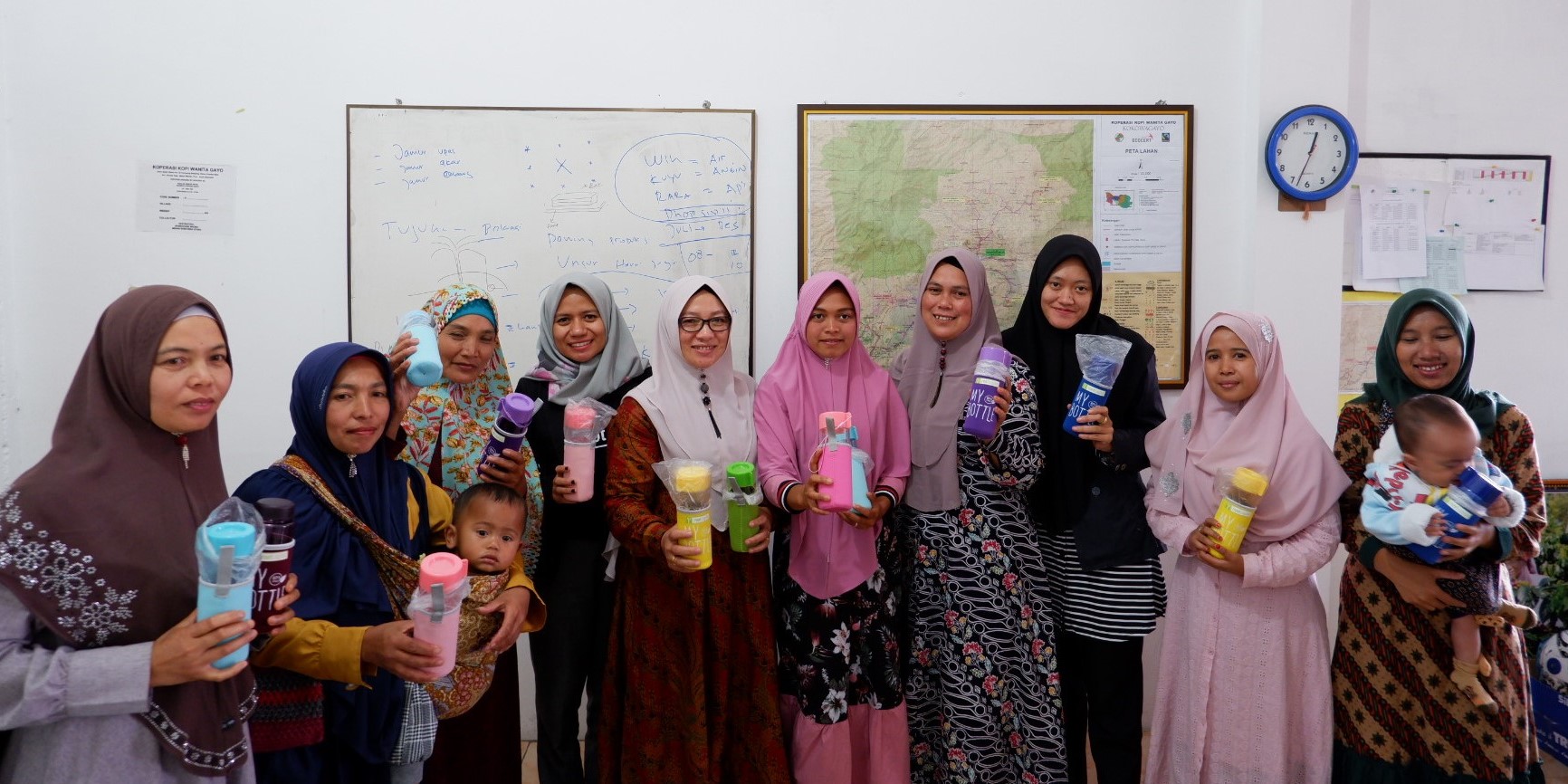 Women cooperative members pose for a photo taken during a 2019 incremental income study on coffee clients in Indonesia. Credit: Root Capital.
Women cooperative members pose for a photo taken during a 2019 incremental income study on coffee clients in Indonesia. Credit: Root Capital.
Breaking the Glass Ceiling
Ibu’s vision is to promote holistic training that can solve the multifaceted problems facing Indonesian women working in agriculture. Her training program, bolstered by USAID funding, develops women’s professional skills and designs a pathway for women to own their farms. This is especially pertinent for the next generation of young working women. By providing access to educational resources that women have been sorely lacking, Ibu hopes to see young women in her country emerge as respected leaders and equals in the next generation. She believes that young women today are braver than prior generations, emboldened by the work of women that came before them, like Ibu herself.
Ibu envisions a world where women are free and welcome to work in any role, allowing the opportunity for higher compensated positions like aggregators and tasters. In Ibu’s own words: “My joy comes from watching women grow. As a leader, my happiness comes when I see women doing better, taking ownership of their lives and being able to provide for themselves and their families. We take care of each other; we take care of our mental health.”
To make this vision a reality, these women need the space to practice and develop skills that have been historically out of reach because of misogynistic beliefs. For example, coffee cupping is a highly technical part of coffee production. Cupping is a tasting technique used to check the quality of a batch of coffee. The coffees are then scored on aspects such as cleanness, sweetness, acidity, mouthfeel and aftertaste. Cupping not only requires technical skills, but also people skills and showmanship, as it is a public-facing position with a performance element. The training required to be a professional coffee taster is expensive, sometimes more than $2,000 USD, not including the specialty equipment. In order for women to improve their livelihoods, they must find ways to break down the financial barriers to education. This is where partners like USAID and Root Capital come in.
Kokowgayo used funds from their resilience grants to invest in training and equipment, allowing women to work in previously male-dominated roles like coffee cupping. Through USAID and Root Capital’s financing and advisory support, Kokowagayo helps women to strengthen their technical skills and livelihoods.
Next Generation Gender Equity
Kokowagayo operates on the principle that the next generation of workers is key to dismantling the gender inequalities that permeate the Indonesian agricultural sector. One way Kokowagayo is shifting cultural norms is by exposing children-both boys and girls-to the work done at the cooperative. By allowing younger people to witness different parts of the business, children watch their mothers lead-a process Ibu refers to as “regeneration-succession.” She believes this inclusion will accelerate change in her local culture.
Ibu has already introduced these principles in her own cooperative by creating an informal youth council at Kokowagayo, founded in 2020. The council consists of 15 women in their twenties, all of whom are members of the cooperative. The youth council has attended leadership training sponsored by Fairtrade International to strengthen their skills and position them as future leaders at Kokowagayo.
The Cooperative’s Continued Challenges and Plan
While Ibu has made history with her cooperative, there is still work to be done on the implementation of equitable internal policy. Kokowagayo’s gender committee is currently not functioning because cooperative members are so busy. Ibu is committed to her employees’ professional and entrepreneurial development, but the cooperative is lacking a targeted, documented plan of action. Root Capital suggested that the cooperative develop a strategic gender equity action plan that focuses on standardizing processes and documentation. In September 2023, the cooperative created its first Gender Equity Advisory Plan (GEA) with Root Capital support. Given the many legal and social deterrents to women’s land ownership in Indonesia, the plan focuses on identifying pathways around these barriers, as well as documenting processes in writing to formalize and standardize their policies. Furthermore, Root Capital is working with Kokowagayo to formalize professional development opportunities and pathways for other cooperative members to become entrepreneurs themselves. By identifying challenges and creating concrete strategies, Kokowagayo is dismantling barriers for women in agriculture in Aceh.
First of Its Kind: Café Feminino Sumatra Program
Ibu and Kokowagayo are brightening the future for women agricultural workers in Aceh. Their prestigious Fairtrade and Organic certifications mark them as dedicated partners in the fight to ethically cultivate coffee and fairly compensate growers. The cooperative takes their employees’ development seriously, engaging with continued education and training with programs like the Café Femenino Program, a one-of-a-kind ethical sourcing model committed to ending the cycle of poverty affecting women coffee farmers.
Kokowagayo was the first cooperative in Indonesia to implement a chapter of the program. Frustrated by their continued exclusion from positions of power and the decision-making processes at their cooperatives, the women members began separating their harvests from their male counterparts in 2014. They aimed to create a space where women could be part of the economic decision-making in their business-and they subsequently founded Kokowagayo to make this dream a reality. The women of the cooperative knew that they would make smart, community-based decisions when allocating Fairtrade premiums. By starting the Sumatran chapter of the Café Femenino Program, the cooperative is putting resources toward financial and entrepreneurial trainings, improving member livelihoods, and constructing physical spaces like community centers. Ibu is creating pathways to improved income and financial independence for women, undertaking the history-making work of shifting the patriarchal culture of agriculture in Aceh.
You may also be interested in...
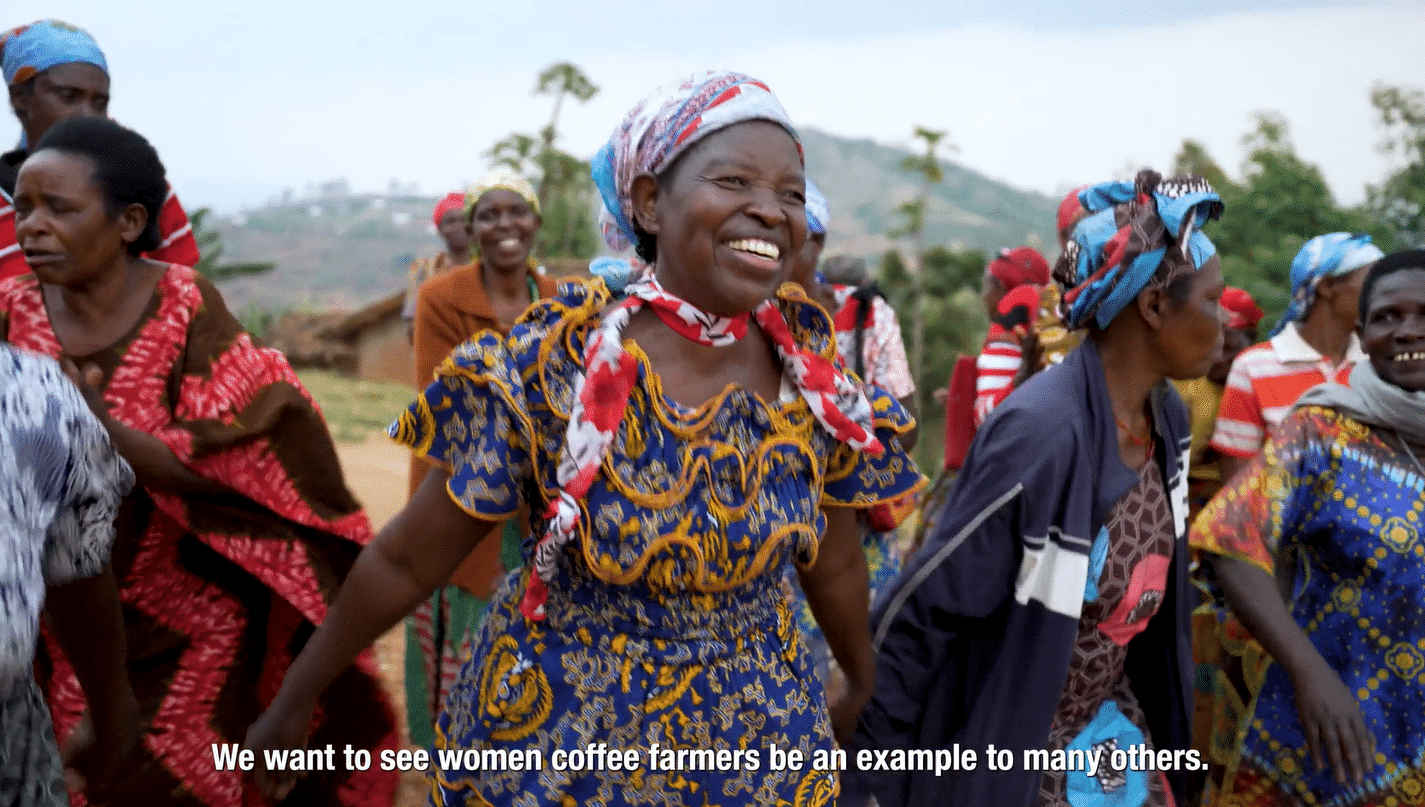
VIDEO: Celebrating 10 Years of Our Women in Agriculture Initiative
Approximately, 2.5 billion people worldwide rely on small-scale agriculture for their livelihoods. Most of them live
Date:
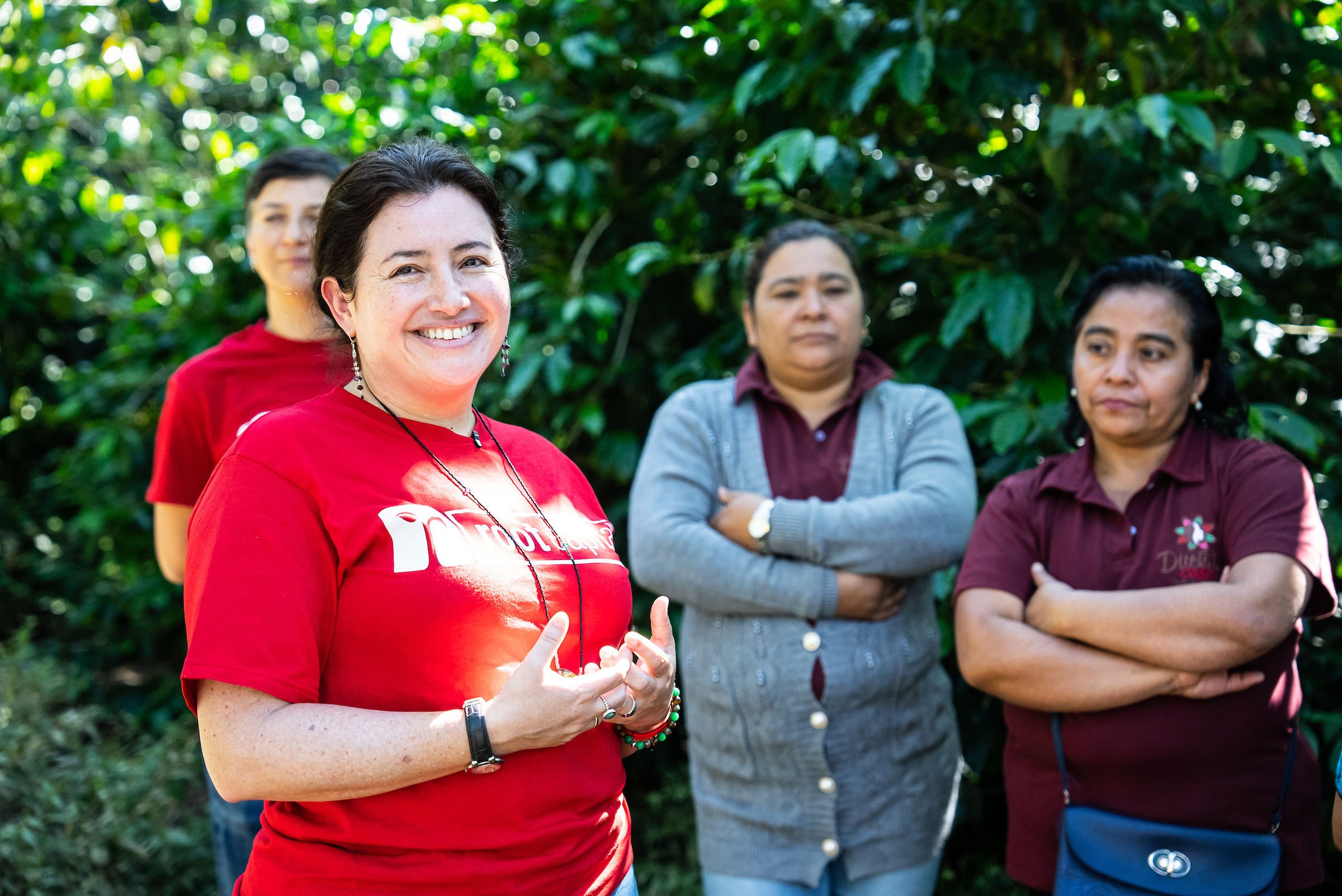
Closing the Gender Gap in Agricultural Finance: A Shared Commitment
Thirty-six percent of women globally and more than sixty-five percent of women in regions such as sub-Saharan Africa and South Asia earn their living from the agriculture sector. Yet, women receive only seven percent of total agricultural investment…
Date:
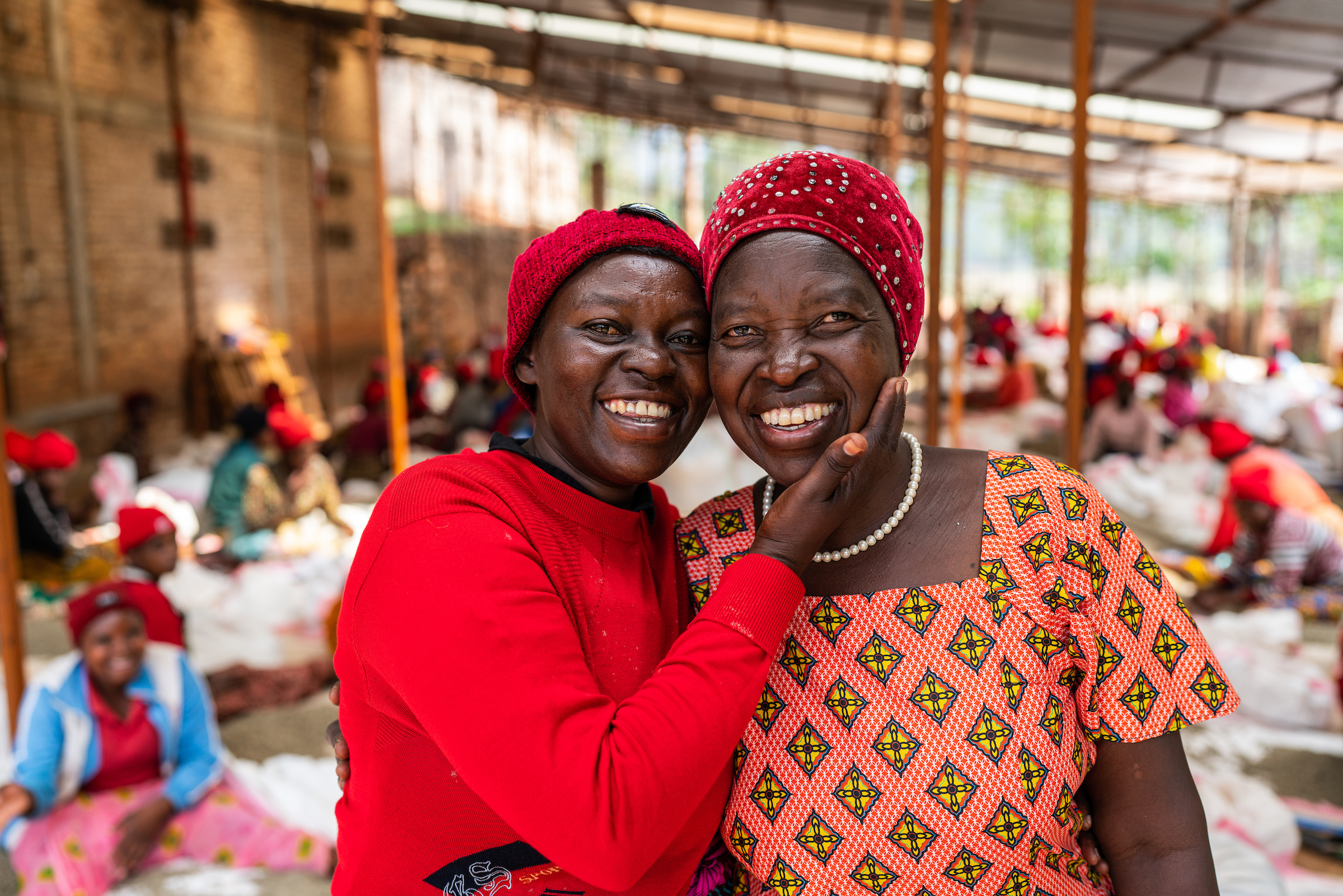
Announcing Our New Women in Agriculture Annual Report
Women members of Koperative Abahuzamugambi Ba Kawa (Maraba), a coffee cooperative in Huye District, Rwanda. Photo
Date:


